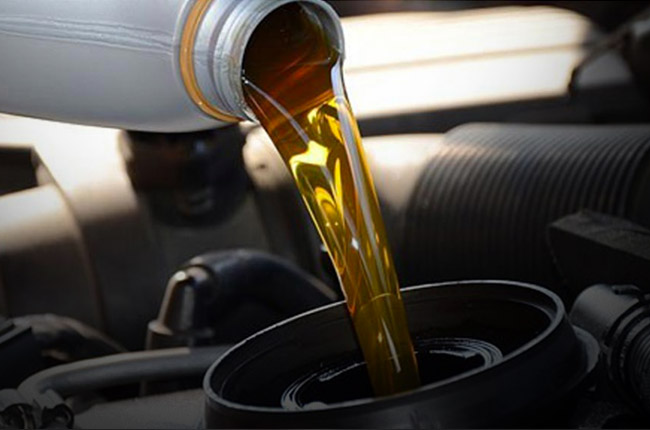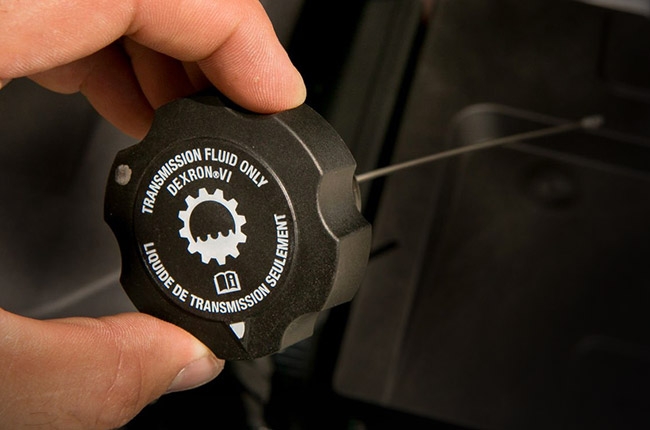
Your car, aside from your dog, can also be your best friend. Be it a long vacation drive, a business errand, a family go-out, or driving just to grab a meal or coffee, you can never be apart from your car. However, like a dog, it has basic necessities which you need to take note of.
While food and water sustain your dog, essential fluids inside your car maintains various respective parts for a smooth drive. With that, we have listed down 6 essential fluids you must know inside your car.
Motor oil
Your engine powers your vehicle, however, it cannot and will not last without the help of the engine oil. Also known as motor oil and engine lubricant, it’s like the blood that circulates in the engine, which is then delivered into various parts of the motor by the oil pump.

Moreover, the oil is responsible for reducing friction by lubricating the moving parts inside the engine, as well as helps to clean the engine.
Transmission fluid
While the oil keeps the engine running and lubricated, transmission fluid does the similar job in the gearbox. It also acts as a cleaning agent by preventing buildups, while cooling the transmission as well.

The transmission fluid is normally red. When your fluid's color is brown and has a smell of a burnt rubber, it is recommended to have it checked or be replaced.
Coolant/Radiator fluid
The coolant, also known as the radiator fluid, is responsible for keeping your engine from heating up. Overheating could stall your vehicle, or worse, roast your engine. More so, this fluid also defends other transmission components against corrosion.

Brake fluid
Yes, your brakes have fluid in them too. This is because your car's braking system is hydraulic, meaning, it uses pressurized fluid to activate the brakes. Brake fluids are incompressible when it's fresh, however, it boils when overheated. This produces compressible air bubbles, making your brakes soft.

When such problem worsens, repeatedly pumping the brake pedal is necessary just to activate the brakes. Therefore, it is safe to bring your car in for repair or brake fluid replacement.
Power steering fluid
Like your brakes, your steering wheel also uses hydraulics to make your car's handling light. This fluid does multiple jobs at once aside from improving the lubrication of your car's steering gear. It also prevents corrosion, suppress foaming, and powers the steering pump.

Without the power steering fluid, your car's ability to steer will be stiff, making it difficult to turn. This problem could lead to serious accidents, especially on curves and streets with corners.
Refrigirant
Also known as 'air condition fluid', works similar to motor oil and radiator coolant, but is designed primarily for the A/C system in your car. Through the help of refrigerant, the A/C system performs a series of processes: evaporation, condensation, compression, and expansion.

Refrigerants originally contains chlorofluorocarbon (CFC) but was banned due to negative effects on our ozone. The most popular brand is Freon, however, some people refer to the fluid itself as "Freon."
Bonus: Washer fluid
Now that you know the 6 essential fluids in your car, you are left with the commonly overseen fluid in your car – the washer fluid or wiper fluid. Washer fluid helps clean your windshield from dirt you might face on the road. A blurry windshield often results to certain road accidents, which could be fatal for you, as a driver, and to your passengers.

Although some people use plain tap water in refilling their washer fluid, it isn't just a mixture of water and soap. In fact, using tap water could cause a long-term problem because it may contain various minerals that could cause small scratches that worsen in time. Soap, on the other hand, contains certain chemical ingredients that could also cause streaks on your windshield.
In this case, wiper fluids are available in the market so you could always buy one. However, you can also improvise your own version of wiper fluid by combining 236 mL rubbing alcohol, 30 mL liquid dish soap, and distilled or purified water in a 1 gallon-container.
It is safe to be knowledgeable about the different fluids in your car. One reason is to avoid refilling or replacing them with the wrong type of fluid, leaving you with more problems and extra cash at stake.
Latest Features
-
An all-electric future: The Porsche Macan Electric / Featured Article
Porsche’s Macan goes all-electric; it’s a new beast with an electrified heart, yet unmistakably Porsche in performance and spirit.
-
Which Kia should I buy? / Featured Article
We’re here to help you decide which Kia vehicle is best for you, whether it’s a sedan, crossover, or minivan.
-
Why Lynk & Co is a good option for luxury car buyers / Featured Article
Lynk & Co offers premium value for those exploring the luxury market.
Popular Articles
-
Electric Vehicles in the Philippines for under P1 million
Jerome Tresvalles · Aug 19, 2025
-
Top 3 Cars For Every Lifestyle—What Cars Are Right For You? | Behind a Desk
Caco Tirona · Apr 24, 2024
-
5 Tips to Maximize Fuel Efficiency
Jerome Tresvalles · Sep 09, 2024
-
Five driving habits that are draining your fuel tank
Jerome Tresvalles · Jun 24, 2025
-
Can engine braking harm your engine?
Jerome Tresvalles · Sep 11, 2025
-
Do electric cars even need maintenance?
Jerome Tresvalles · Oct 23, 2024
-
Best vehicles for an active outdoor lifestyle
Shaynah Miranda · Jul 25, 2024
-
How to drive different types of vehicle transmissions
May 23, 2024
-
5 easy ways to keep your car interior clean
Allysa Mae Zulueta · Nov 15, 2021
-
How to survive Metro Manila traffic
Earl Lee · Aug 16, 2022



